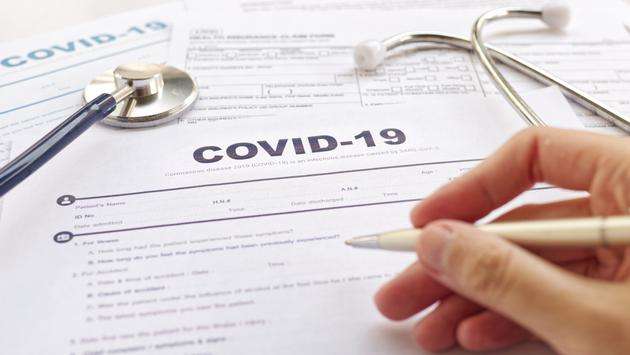It might seem counterintuitive that, instead of needing a negative COVID-19 test to cross international borders, you could offer proof that you’d previously tested positive? Yet, these so-called ‘immunity passport’ policies already exist in certain countries, operating on the assumption that, having been infected and recovered, a person can’t contract or carry the virus again.

It’s the premise for a new testing and quarantine exemption rule in Iceland that will go into effect on December 10. Under standard requirements, international travelers entering Iceland must either complete 14 days of quarantine or take two COVID-19 tests, the second administered five days after arrival, and test negative both times to be released from isolation.
Under the new provision, foreign visitors will be exempt from these requirements if they can provide proof that they’ve already had COVID-19 and recovered. According to CNN Travel , Iceland border authorities will accept documented evidence of a positive COVID-19 PCR test that’s at least 14 days old or an ELISA test (which measures antibody levels) that’s issued by an approved European lab.
CNN reports that Hungary had adopted a similar exemption back in September, although the country hasn’t released any information about the success or failure of the policy, what science its decision was based on, or the pros and cons it might’ve weighed before implementing it.
Hungary also seems an unlikely candidate to have authorized such an unusual loophole, considering that its borders remain closed to nearly everyone, including its European neighbors, and its government openly demonstrates hostility toward migrants. However, reports indicate that the ‘immunity passport’ exemption doesn’t seem to be much utilized and hasn’t been widely talked about even within Hungary.
Plenty of experts have reportedly raised concerns about the ethics and safety of ‘immunity passports’. The World Health Organization (WHO) last week confirmed to CNN that it hasn’t altered its position advising against them, which it established back in April. An excerpt from its scientific brief at the time read, "There is currently no evidence that people who have recovered from Covid-19 and have antibodies are protected from a second infection."
But, eight months have passed since then and our collective understanding of the virus’ behavior has continued to evolve.
"It's certainly theoretically possible that some people even who have antibodies may not be protected," Dr. Ania Wajnberg told CNN outside her lab at New York’s Mount Sinai Hospital's Icahn School of Medicine. "But I think the majority of people that test positive for antibodies will be protected for some time."
Wainberg herself is leading a study of over 30,000 people who experienced mild to moderate cases of COVID-19. Her latest findings, published in October, said that 90 percent of subjects had enough antibodies to protect against reinfection from the virus for many months, if not longer.
Iceland’s chief epidemiologist Thorolfur Gudnason cited similar findings that have emerged from his country’s own research and studies from abroad. "I think it's pretty safe. I mean, everything that we do has uncertainties with it. Nothing is 100 percent," he told CNN.
Proponents of the ‘immunity passport’ concept believe that it might catch on once vaccines become available. The International Air Transport Association (IATA), along with other organizations, is counting on travelers’ ability to get vaccinated in the near future to effectively restart travel. Its proposed digital ‘ Travel Pass ’ is intended to allow travelers to securely store and readily provide proof of inoculation and/or COVID-19 test results.
University of Oxford ethicist Rebecca Brown feels that those who’ve recovered from the virus should be regarded the same as those that have been vaccinated. Despite her skepticism, Carmel Shachar, a Harvard University bioethics and health law expert, found herself agreeing, "There's actually a positive benefit to treating them the same. We don't want to waste vaccine dosages, it'll be a while before we have enough vaccines for absolutely every human on the planet."
Leave a Comment